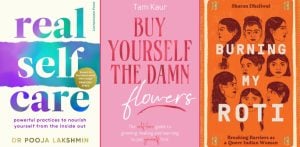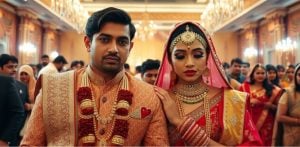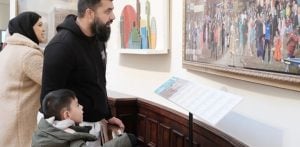The journey from swipe to shaadi is rarely linear.
For many British Asians, finding love is no longer confined to community events, family introductions, or university romances.
Dating apps have swiftly become the modern matchmaking norm, particularly among younger generations.
With a few swipes, users can explore a digital sea of potential partners, each profile presenting a new possibility.
Yet beneath the ease of swiping lies a deeper cultural negotiation between age-old traditions and modern values.
Marriage, a cornerstone of British Asian identity, is still very much the goal for many, but how it’s approached is rapidly evolving.
The question remains: are dating apps expanding choice or simply reframing old expectations in a digital setting?
Navigating Two Worlds
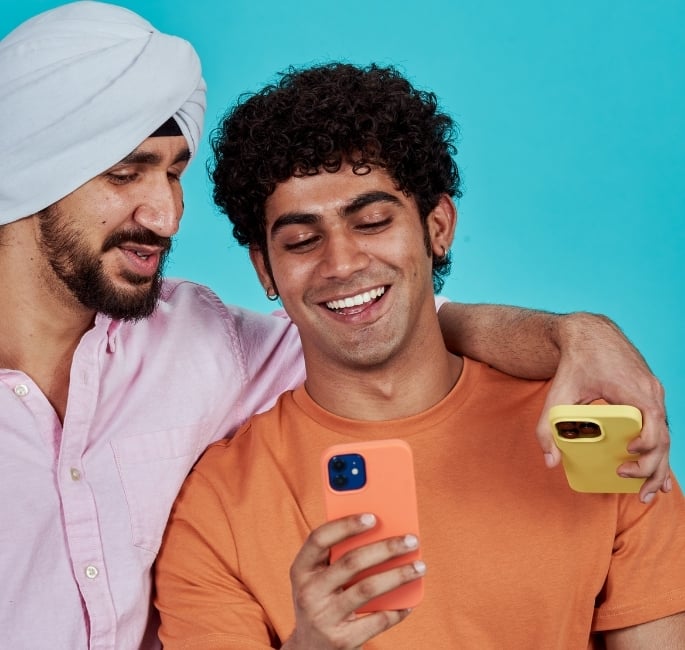 British Asians often straddle two distinct cultural identities, balancing heritage with modern British values.
British Asians often straddle two distinct cultural identities, balancing heritage with modern British values.
For second-generation individuals in particular, dating apps are a space where this push and pull is especially visible.
On one hand, users feel empowered to choose partners based on compatibility, chemistry, and shared goals.
On the other hand, they remain tethered to ideas of izzat, arranged marriage, and religious alignment.
The convenience of dating apps allows for personal exploration, yet it also forces users to confront family expectations.
Some hide their online presence from elders, fearful of judgment or disappointment.
Others hope to eventually introduce a partner they’ve met online, presenting it as fate rather than a swipe.
This duality can be emotionally draining, especially for women navigating conservative family dynamics.
Apps like Dil Mil and Muzmatch even attempt to bridge this gap by prioritising cultural compatibility.
However, many users still wrestle with questions of loyalty, both to themselves and their communities.
The result is a layered experience that is as much about identity as it is about romance.
Swipe Culture
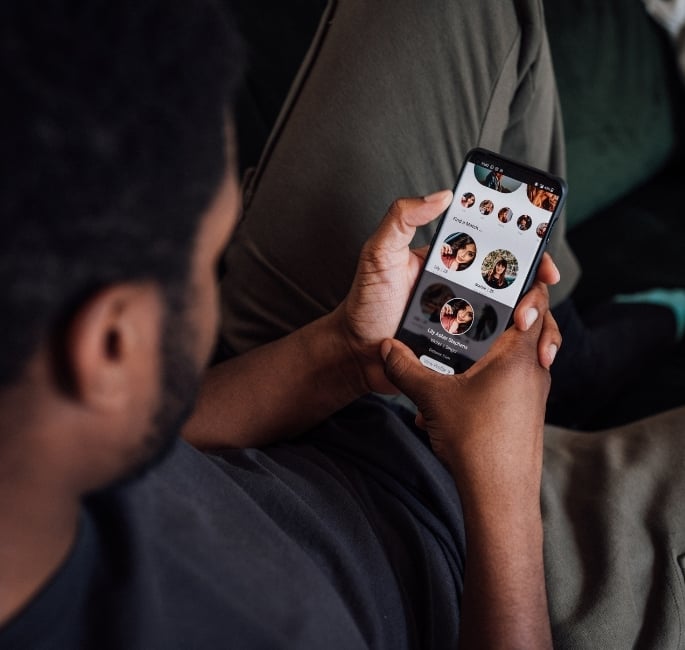 Dating apps appear to offer endless possibilities, yet whether they truly broaden or narrow choices for British Asians is a subject of debate.
Dating apps appear to offer endless possibilities, yet whether they truly broaden or narrow choices for British Asians is a subject of debate.
For many, apps open doors that traditional matchmaking never could.
Swiping through a wide range of profiles, users encounter people from different cities, professions, and even faiths.
This expanded pool often allows for a deeper exploration of what truly matters in a partner, shared values, lifestyle goals, or emotional compatibility.
For some, it also redefines what relationships should lead to, moving away from fixed timelines and focusing instead on mutual readiness.
Importantly, women often gain a greater sense of agency through dating apps.
They can set their own rules, take their time, and reject proposals without explanation.
This is a significant shift in communities where women have historically had less control over romantic choices.
The ability to negotiate love, intimacy, and boundaries is a form of empowerment that should not be underestimated.
Still, despite these advancements, many British Asians remain within the bounds of cultural preference.
Ethnicity, language, and religious alignment continue to dominate partner selection, even in digital spaces.
Some users apply filters or swipe only within familiar communities, effectively recreating traditional limitations online.
There is also the element of secrecy, hidden profiles, private conversations, and the fear of being discovered.
For these users, the freedom offered by dating apps is carefully curated and often constrained by social and familial pressures.
The Quiet Transformation
 Rather than a cultural revolution, what dating apps have sparked in British Asian communities is a quiet transformation.
Rather than a cultural revolution, what dating apps have sparked in British Asian communities is a quiet transformation.
Change is happening, but it is often subtle, cautious, and negotiated behind closed doors.
Hybrid identities are being formed, ones that respect family values while asserting individual desires.
Romantic love is no longer dismissed as frivolous, and conversations about compatibility, emotional wellbeing, and even therapy are becoming more common.
Social media has helped normalise open discussion about relationships, further breaking down taboos.
This transformation is not without its contradictions. Some users date freely but still plan to marry within their caste or community.
Others seek non-traditional partners but fear the consequences of introducing them to their families.
The journey from swipe to shaadi is rarely linear.
While the digital age has ushered in tools for exploration, it has not erased the complex interplay of tradition, honour, and community expectations.
Over time, these quiet shifts may pave the way for greater openness and diversity in partner choice.
But for now, most British Asians continue to walk a tightrope, balancing modern love with cultural continuity, one swipe at a time.
Dating apps have undoubtedly changed how British Asians approach love, dating, and marriage.
They offer unprecedented access to potential partners and empower users, especially women, to take control of their romantic lives.
Yet, beneath the digital convenience lies a persistent thread of tradition, shaping how relationships are formed, presented, and pursued.
While choices may appear to have broadened, cultural self-selection often reins them back in.
Swipe culture is not a rebellion, but a reshaping, a way of engaging with heritage while carving out personal freedom.
For British Asians, it’s not just about finding ‘the one’ but about defining what that truly means in a rapidly evolving world.




